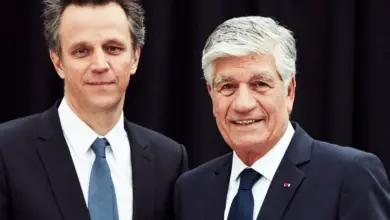Omnicom’s airtime row with Channel 5 shows that UK media buying isn’t a free market at all
There still seems to be no sign of a resolution of the airtime dispute between Omnicom media buying company Opera and Channel 5. Which is odd because when WPP’s GroupM fell out with Channel 4 a couple of years ago the spat was resolved relatively quickly, with WPP boss Sir Martin Sorrell allegedly acting as peace broker.
Sorrell recognised that a big buying group (GroupM accounts for a third or more of all UK adspend) throwing its weight around in such a way would perturb both its clients (who would wonder what exactly was going on as they’d advertised happily on the station previously) and regulators, who might begin to question if the likes of GroupM had grown too big for everyone’s boots.


As it is they’ve been shunted on to ITV and C4, whose prices are higher and ratings nothing to write home about. C4 has still not replaced the millions of viewers it lost when it decided to dump Big Brother.
C5, which Viacom bought from Richard Desmond for a whopping £450m last year, is not taking things lying down. C5 trading director Ross Belcher has written as follows to the clients concerned:
“Given the circumstances, it is sometimes difficult for us to connect with Omnicom clients So I strongly urge you to take independent advice from your media auditor and ask them how [Omnicom’s] position can be justified and/or beneficial to your business.”
It would indeed be interesting to know what the various media auditors, who include companies like Ebiquity and Accenture, make of all this. But let’s surmise, for now, they reckon Opera’s decision is based on its commitment to spending a certain amount of money on ITV and C4, and there ain’t enough left for poor old C5.
Media buyers promise such ‘share’ to media owners in return for certain prices and spots. Sometimes they struggle to deliver. Whatever else this may be, it’s hardly a sign of a free market.
A few weeks ago Dixons Carphone consolidated its media buying into Walker Media, now majority-owned by Publicis Groupe, dumping CHI’s M/SIX in the process. M/SIX is part of GroupM, whose executives were disbelieving of the prices allegedly offered by Walker. They didn’t see how Walker could offer such prices to Dixons Carphone without penalising its other clients.
Essentially, some clients do well out of these arrangements, others do not.
The same, of course, applies to media owners. It’s odd that Omnicom, which is usually pretty sure-footed, finds itself in this mess. Because it is a mess and one that might have a far-reaching impact on the murky world of UK media buying.









